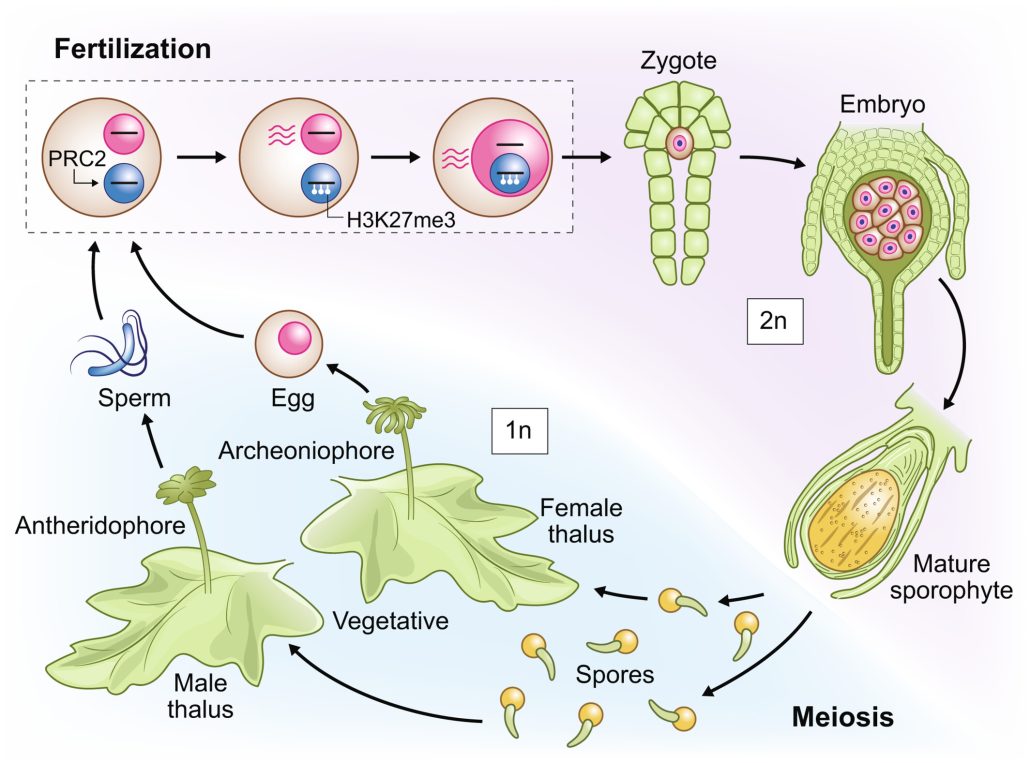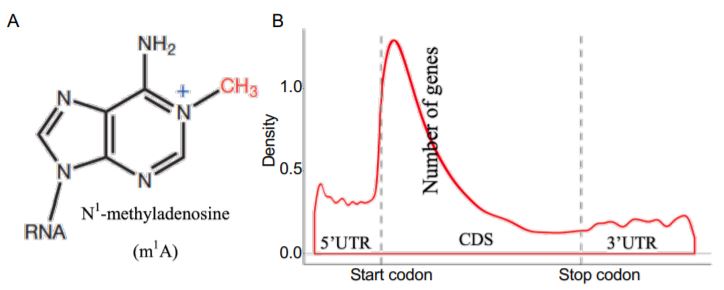
Review: Paternal imprinting in Marchantia polymorpha
Plant Science Research WeeklyHumans and flowering plants spend most of their lives in a diploid state with two copies of each chromosome in most cells, but to reproduce they produce haploid gametes through meiosis. By contrast, bryophytes (liverworts, hornworts, and mosses), spend most of their lives in the haploid state. They produce…

Chloroplast double-stranded RNA can silence nuclear genes
The Plant Cell: In a NutshellBélanger et al. investigate the silencing of nuclear genes mediated by chloroplast double-stranded RNA transgenes The Plant Cell (2023).
https://doi.org/10.1093/plcell/koad165
By Sébastien Bélanger
Background: Plants have three genomes: the nuclear, the mitochondrial and the chloroplast…

Slice and Dice: DCL2 Mediates the Production of 22-nt siRNAs That Influence Trait Variation in Soybean
Blog, Research, The Plant Cell, The Plant Cell: In BriefIn plants, small interfering RNAs (siRNAs) serve as key regulators of gene expression. While 24-nucleotide (nt) siRNAs are produced by DCL3 and mediate transcriptional silencing of transposons and pericentromeric chromatin through RdDM (Borges and Martienssen, 2015), 22-nt siRNAs are processed by DCL2…

Callose deposition during pollen development
Blog, Plant Physiology, Plant Physiology: News and Views, ResearchMadeleine Seale
University of Oxford
[email protected]
Callose is a cell wall component that is dynamically deposited and degraded during pollen development. Thanks to a new paper investigating pollen formation in cotton (Gossypium hirsutum), we now know that a pollen-specific protein…

A novel Trojan horse for molecule delivery into plants
Blog, Plant Physiology, Plant Physiology: News and Views, ResearchMarc-Sven Roell1
ORCID ID: 0000-0003-2714-8729
1Institute of Plant Biochemistry, Heinrich-Heine University Düsseldorf, Universitätsstrasse 1, 40225 Düsseldorf, Germany
[email protected]
The agronomic application of nanotechnology harbors huge potential for future agriculture (Landry…

Dynamic N1-methyladenosine in plant messenger RNA
Blog, Plant Physiology, Plant Physiology: News and Views, ResearchWei Zhang
ORCID: 0000-0002-5092-643X
Department of Plant Pathology, Kansas State University, 1712 Claflin Road, Throckmorton Hall, Manhattan, KS, 66506, USA
[email protected]
Deposition of different chemical groups onto RNA generates diverse RNA modifications. All types of prokaryotic and…

